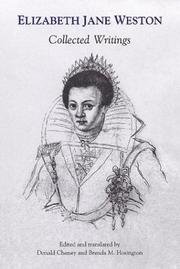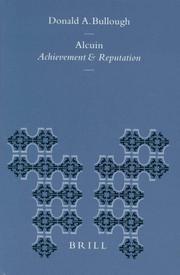| Listing 1 - 4 of 4 |
Sort by
|
Book
Year: 1992 Publisher: Leuven : Leuven University Press,
Abstract | Keywords | Export | Availability | Bookmark
 Loading...
Loading...Choose an application
- Reference Manager
- EndNote
- RefWorks (Direct export to RefWorks)
Back in 1963, when a conference on Horace was organised at Oudpelgeest (The Netherlands), Harry C. Schnur chose to comment upon Horace's famous poem Exegi monumentum aere perennius. Not unlike the Roman poet, Schnur was driven by one of mankind's strongest stimuli, the craving for immortality. No doubt the same attitude of mind made him meticulously keep together every possible line written by, or concerning, himself: copies of articles, books, translations, notes for his courses, poems, letters to editors of newspapers, files with clippings, were all for him more treasured than incunabula, rare books or precious furniture. Wartime conditions and a great many removals from Germany to England, thence to Holland, back again to England, thence to the U.S.A., back to Germany and then finally to the safe harbour of Switzerland, caused the loss of some book-cases, which left his collection incomplete, but still very impressive.
Book
ISBN: 9782753509016 2753509018 2753546908 Year: 2016 Publisher: Rennes : Presses universitaires de Rennes,
Abstract | Keywords | Export | Availability | Bookmark
 Loading...
Loading...Choose an application
- Reference Manager
- EndNote
- RefWorks (Direct export to RefWorks)
Venance Fortunat, poète chrétien du VIe siècle, eut, pour ainsi dire, une vie riche de trois existences : né entre 530 et 540, éduqué à Ravenne, il part pour la Gaule vers la fin de l’été ou à l’automne de l’année 565 ; ce fut le début d’un long voyage dans le monde mérovingien qui s’acheva à Poitiers où il finit sa vie comme évêque de la cité vers 600. Fortunat sera même sanctifié. Au centre d’un réseau d’amitiés et de relations avec les puissants de son temps, il a composé une importante œuvre élégiaque. L’étude de ses Poèmes ici présentée s’inscrit dans la problématique globale et bien établie de la « conversion » d’un genre littéraire profane, en l’occurrence l’élégie érotique romaine des âges cicéronien et augustéen. Par l’élégie devenue chrétienne, Fortunat, parcourant la Gaule mérovingienne, fréquentant évêques et rois, nous fait entrer dans une configuration culturelle autre : celle où le poète élégiaque, tout en demeurant dans le registre d’un genre mineur, compare sa parole à celle des évêques dont la mission déclarée est la conversion des cœurs. Rien assurément ne prédispose le poète élégiaque à tenir un rôle spirituel aussi marqué ; cependant le choix même du style élégiaque est celui d’un style ni sublime ni bas, à l’image de l’être humain, qui convient à la représentation du Christ incarné. Ainsi la morale christique peut prendre forme pour dire en distiques les vertus de l’amitié et de l’amour, la gloire des évêques et des rois catholiques. À sa manière, l’humble inspiration élégiaque contribue à la diffusion en Occident de l’universel chrétien. Venance Fortunat n’évolue plus, à l’imitation des élégiaques passés, dans l’équivoque correspondance du réel au fictif, mais fonde modestement sa légitimité auctoriale sur sa foi dont Marie est l’illustration féminine. Ainsi une harmonie apparaît entre l’élévation d’âme et le rythme discontinu de l’hexamètre suivi du pentamètre. Réécrivant le motif ovidien de l’association inédite et difficile entre grandeur…
Latin poetry, Medieval and modern --- Poésie latine médiévale et moderne --- History and criticism --- Histoire et critique --- Fortunatus, Venantius Honorius Clementianus, --- Poets, Latin (Medieval and modern) --- Christliche Literatur. --- Poets, Latin (Medieval and modern). --- Venantius (Fortunatus) --- Criticism and interpretation. --- France. --- Venantius (Fortunatus). --- Poésie latine médiévale et moderne --- Religion --- Literature (General) --- Venance Fortunat --- latin --- littérature --- poésie --- christianisme --- femme --- religion

ISBN: 1282037234 9786612037238 1442674342 9781442674349 9780802044723 0802044727 9781282037236 6612037237 Year: 2000 Publisher: Toronto
Abstract | Keywords | Export | Availability | Bookmark
 Loading...
Loading...Choose an application
- Reference Manager
- EndNote
- RefWorks (Direct export to RefWorks)
"This is the first modern edition and translation of the writings of the Neo-Latin poet Elizabeth Jane Weston (c. 1581-1612), the stepdaughter of Edward Kelley, court alchemist of Rudolf II of Prague. Weston became widely celebrated as the 'Virgo Angla' and was held in high esteem in the international republic of letters of her time. This collection of poems and letters written by her, to her, and, occasionally, about her, sheds new light on the possibilities of artistic self-representation available to women at the end of the sixteenth century."--Jacket
Poets, Latin (Medieval and modern) --- Latin poets (Medieval and modern) --- Westonia, Elizabetha Johanna, --- Weston, Elizabeth Johanna, --- Leo, Elizabetha Joanna, --- Westonová, Elizabethy Johanny, --- Weston, Elizabeth Jane, --- English Maiden, --- Virgo angla, --- Westonia, Elisabetha Ionna, --- Westonia, Alžběta Johanna, --- Prague (Czech Republic) --- Prag (Czech Republic) --- Praha (Czech Republic) --- Velká Praha (Czech Republic) --- Praga (Czech Republic) --- Prague (Czechoslovakia) --- Intellectual life.

ISSN: 09266070 ISBN: 9004128654 9789004128651 9786610467068 1423712080 1280467061 9047401808 9781423712084 9789047401803 Year: 2004 Volume: 16 Publisher: Leiden Brill
Abstract | Keywords | Export | Availability | Bookmark
 Loading...
Loading...Choose an application
- Reference Manager
- EndNote
- RefWorks (Direct export to RefWorks)
An intellectual biography of Alcuin, the most prominent Anglo-Saxon scholar at the court of Charlemagne. It examines his early years in Northumbria and his time at the Carolingian court, reassessing the chronology of Alcuin's career and writings, and the significance of his large output.
Education, Medieval. --- Educators --- Poets, Latin (Medieval and modern) --- Alcuin, 735-804. --- Catholic Church --- Clergy --- Biography. --- Northumbria (Kingdom) --- Intellectual life. --- Education, Medieval --- Alcuin, 735-804 --- Biography --- Intellectual life --- Alcuin of York --- Poètes latins médiévaux et modernes --- Educateurs --- Education médiévale --- Biographies --- Alcuin, --- Northumbrie (Royaume) --- Vie intellectuelle --- Education --- Medieval education --- Seven liberal arts --- Civilization, Medieval --- Learning and scholarship --- Latin poets (Medieval and modern) --- History --- Ealhwine, --- Alcuin, Albinus Flaccus, --- Alkuin, --- Alcuinus, --- Alcuino, --- Alkvin, --- Church of Rome --- Roman Catholic Church --- Katholische Kirche --- Katolyt︠s︡ʹka t︠s︡erkva --- Römisch-Katholische Kirche --- Römische Kirche --- Ecclesia Catholica --- Eglise catholique --- Eglise catholique-romaine --- Katolicheskai︠a︡ t︠s︡erkovʹ --- Chiesa cattolica --- Iglesia Católica --- Kościół Katolicki --- Katolicki Kościół --- Kościół Rzymskokatolicki --- Nihon Katorikku Kyōkai --- Katholikē Ekklēsia --- Gereja Katolik --- Kenesiyah ha-Ḳatolit --- Kanisa Katoliki --- כנסיה הקתולית --- כנסייה הקתולית --- 가톨릭교 --- 천주교 --- Poets, Latin (Medieval and modern) - Great Britain - Biography --- Educators - Great Britain - Biography --- Alcuinus --- Northumbria (Kingdom) - Intellectual life
| Listing 1 - 4 of 4 |
Sort by
|

 Search
Search Feedback
Feedback About UniCat
About UniCat  Help
Help News
News